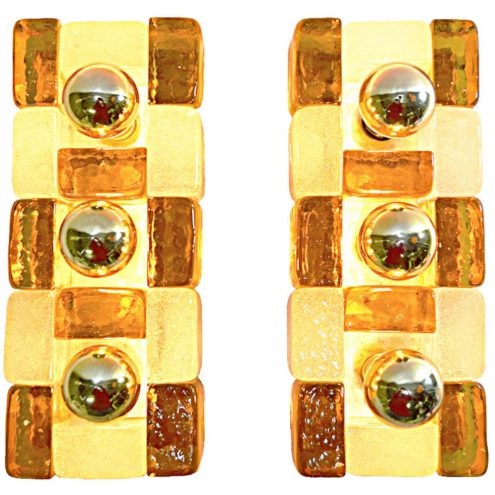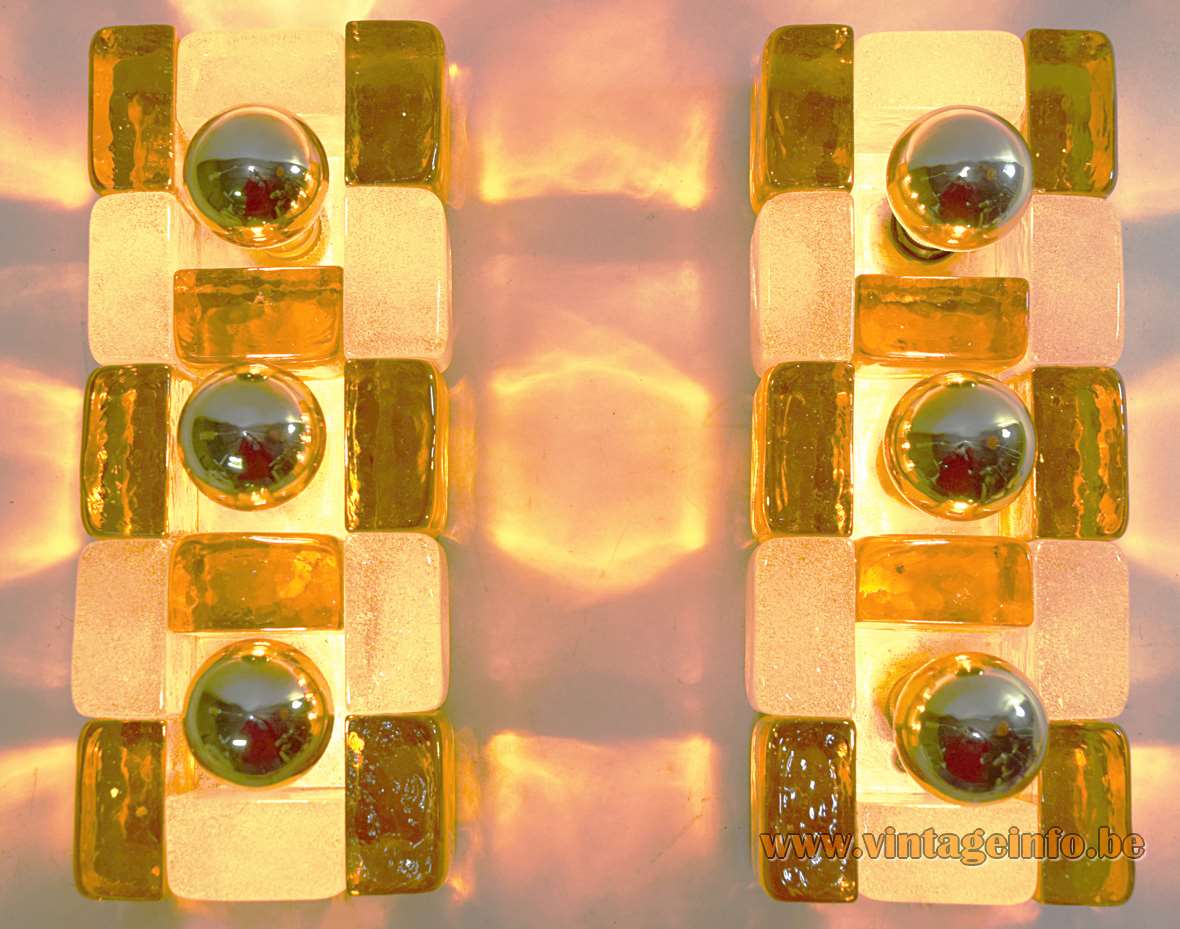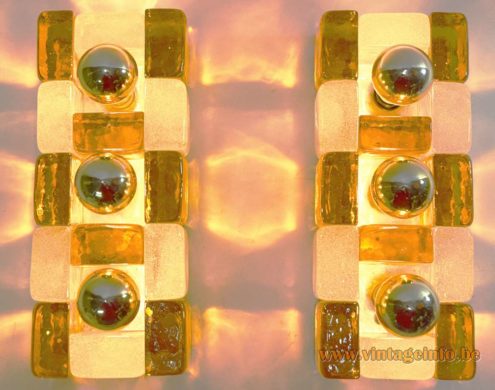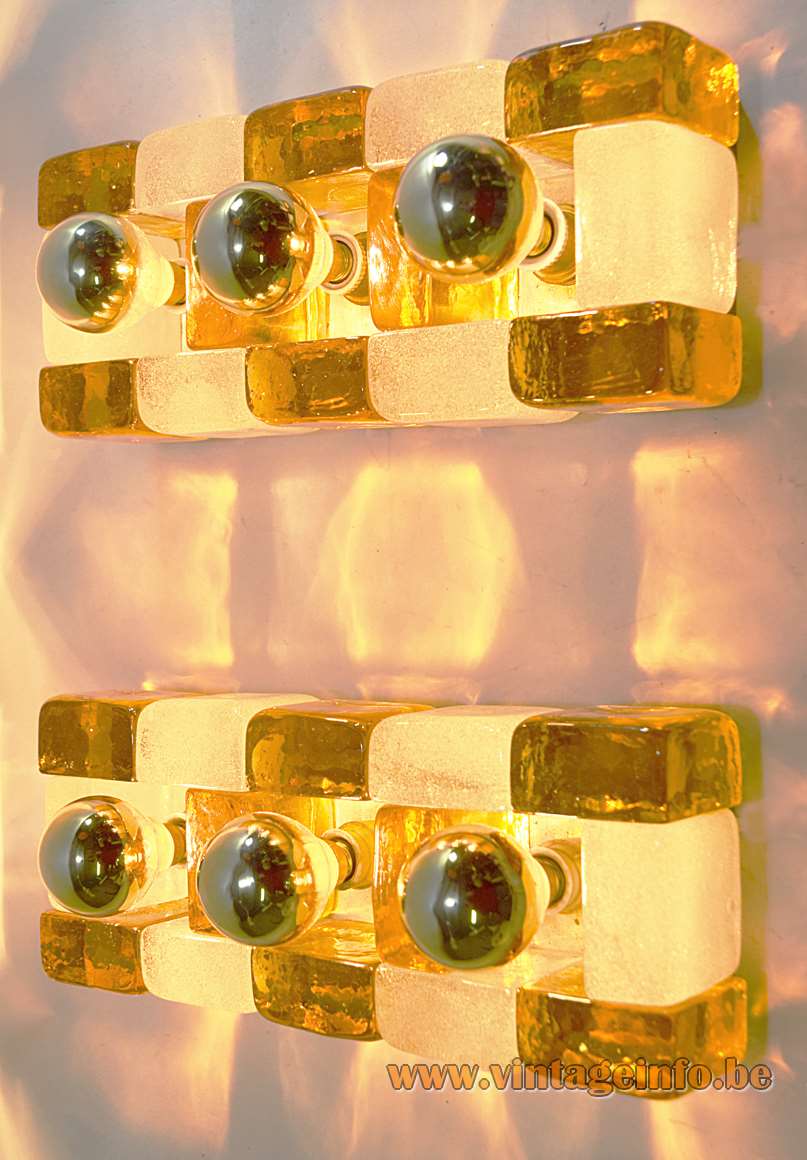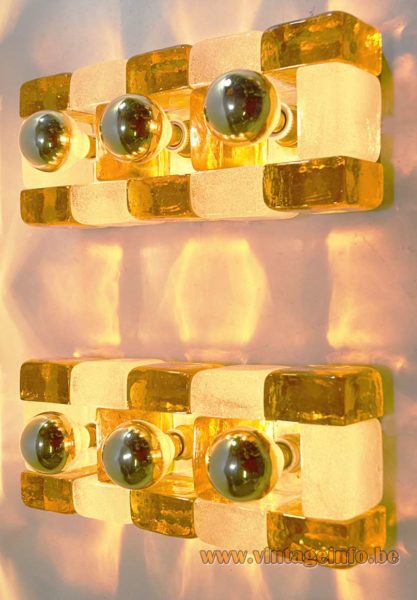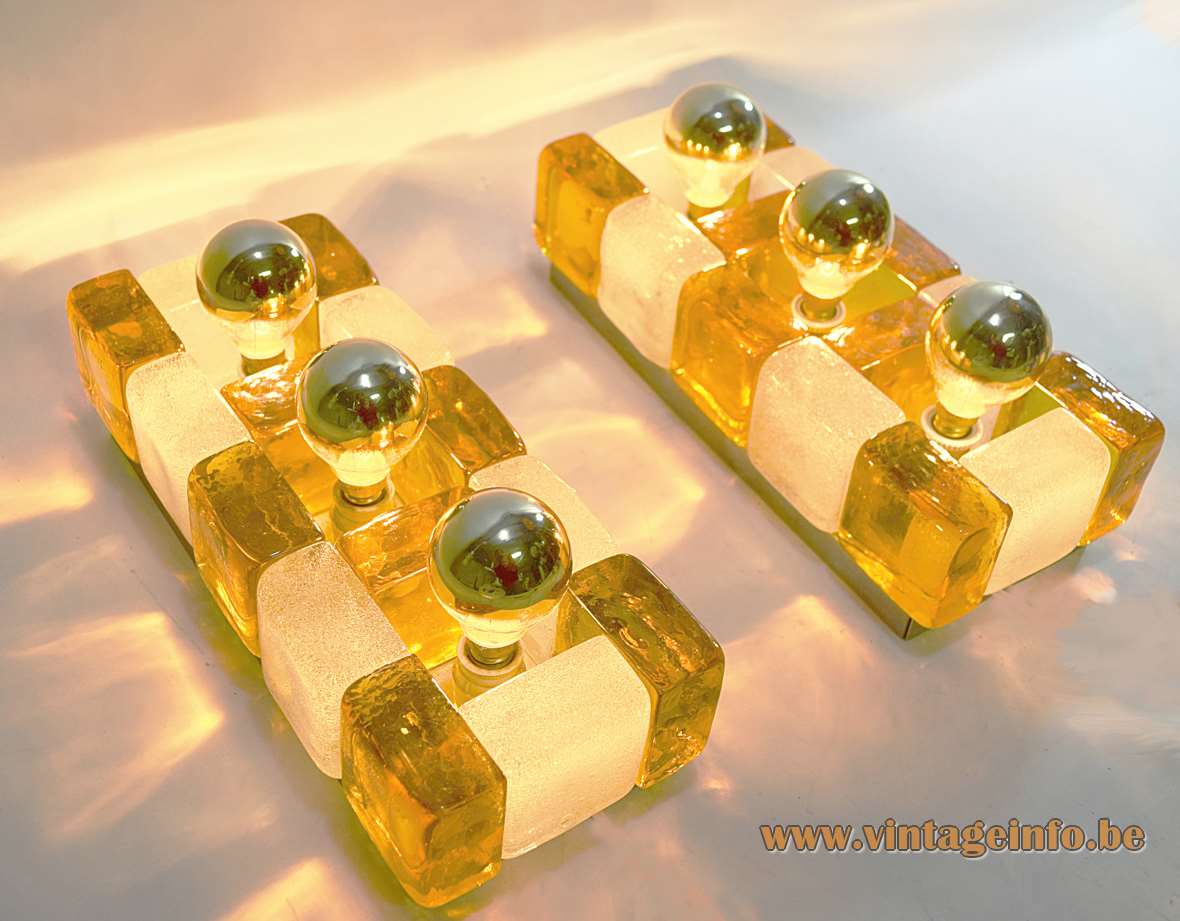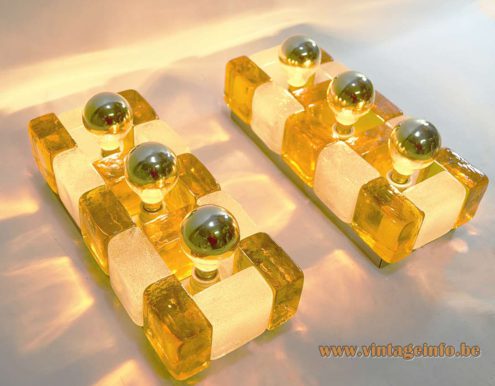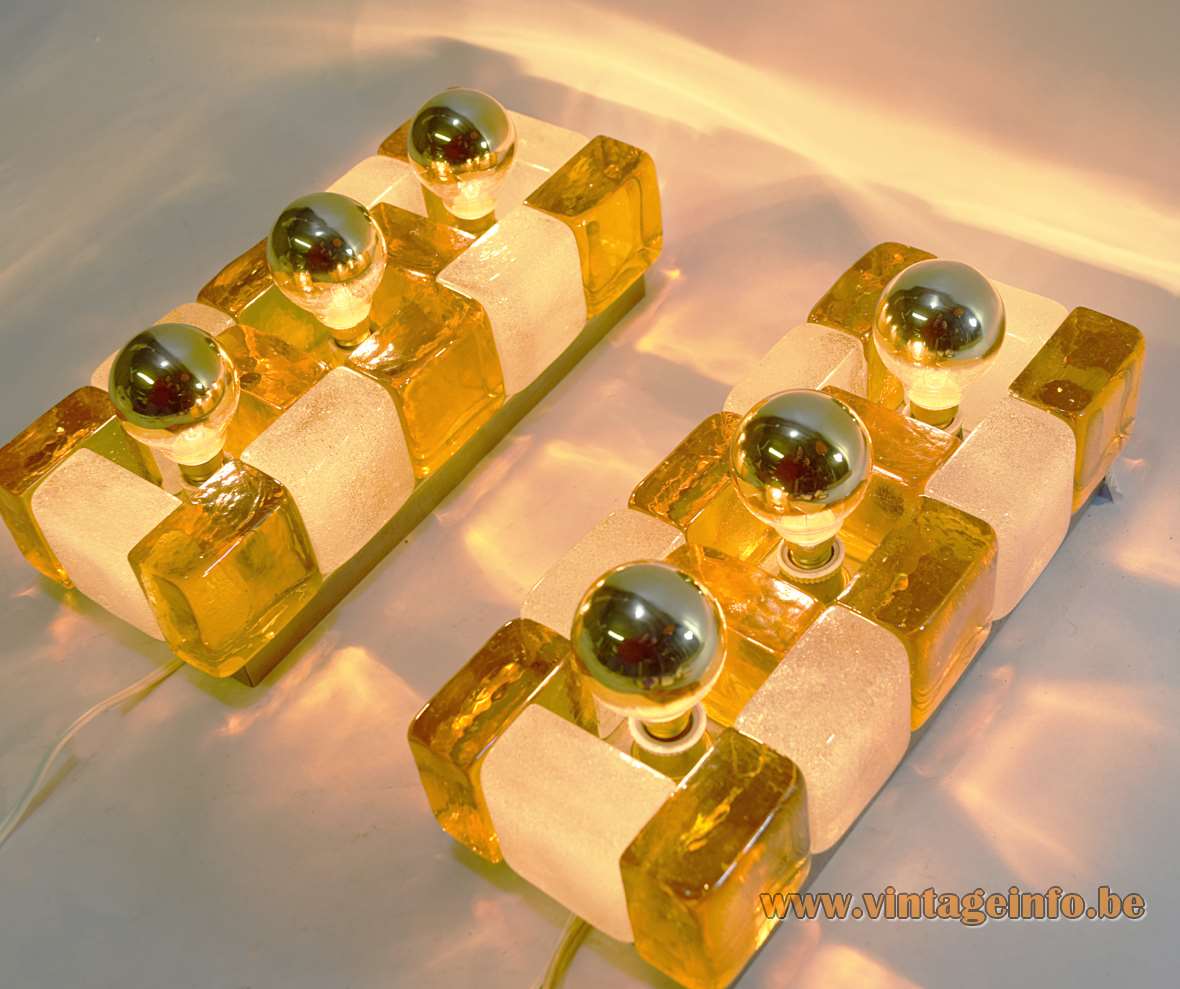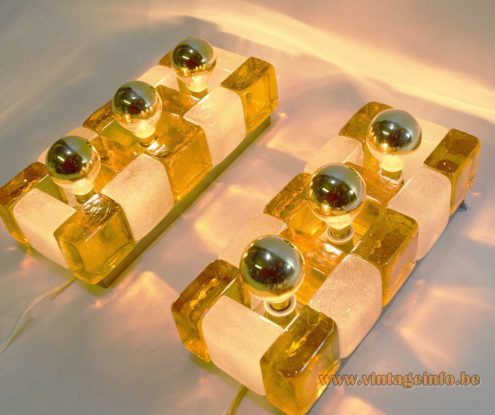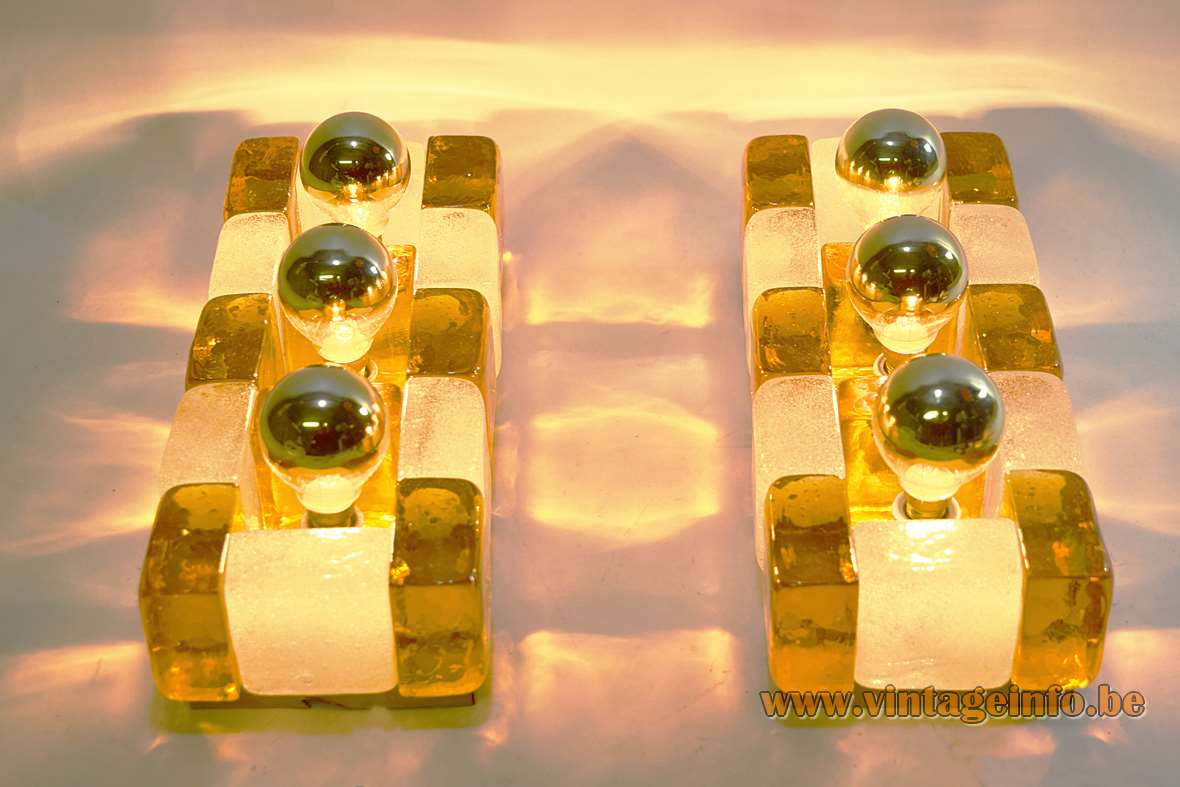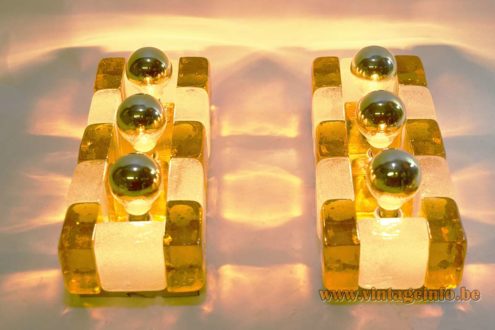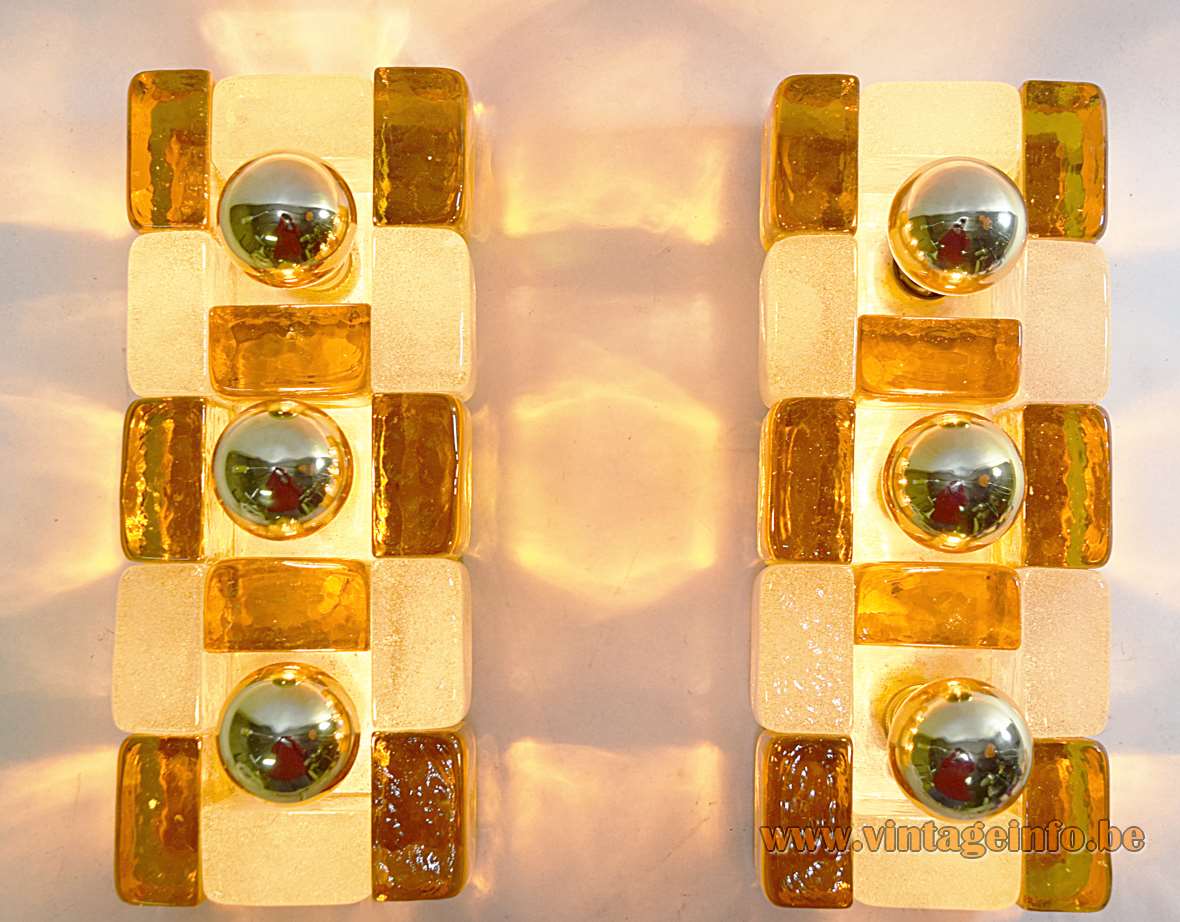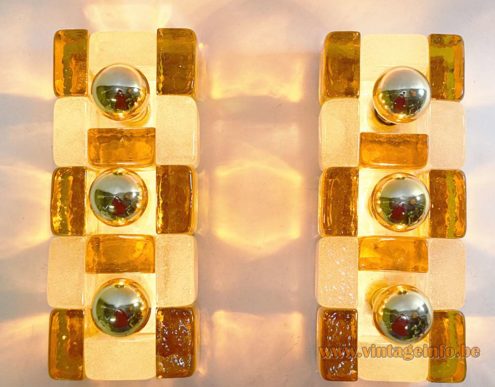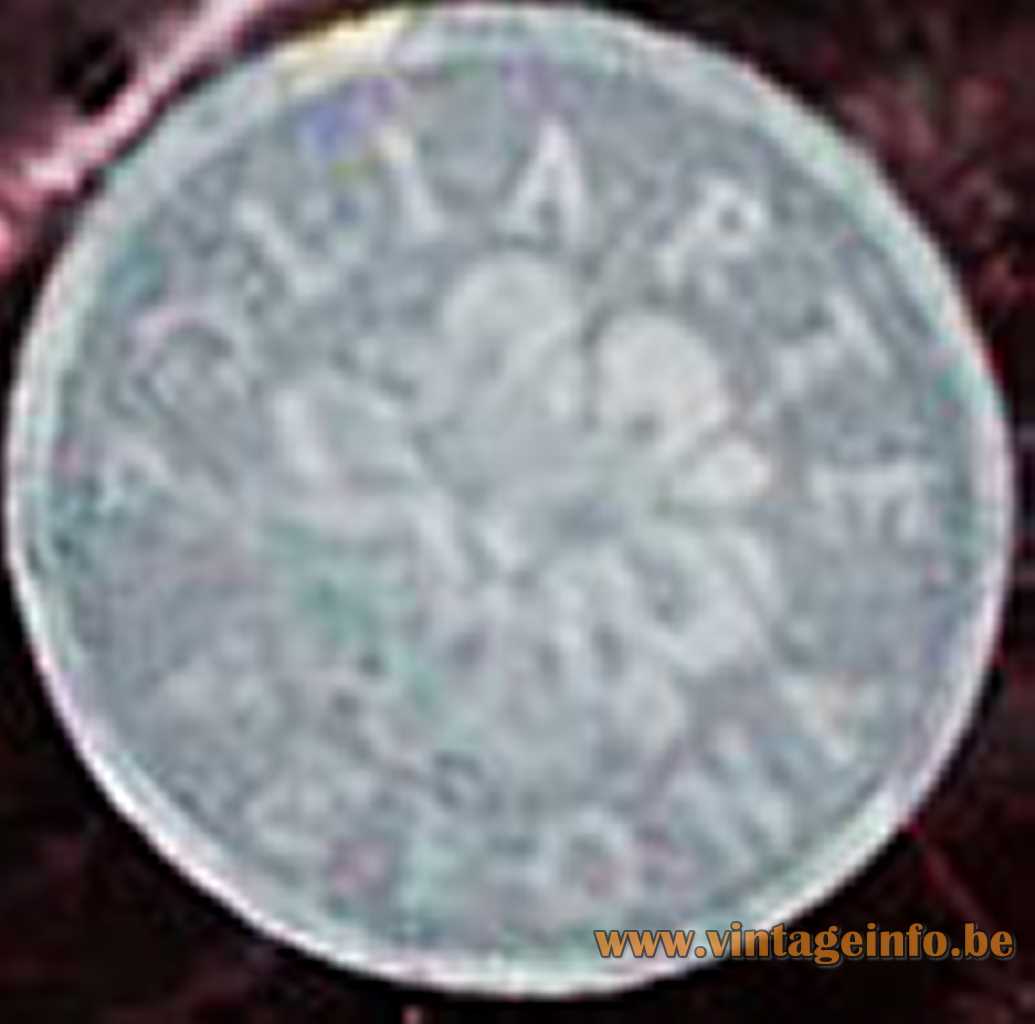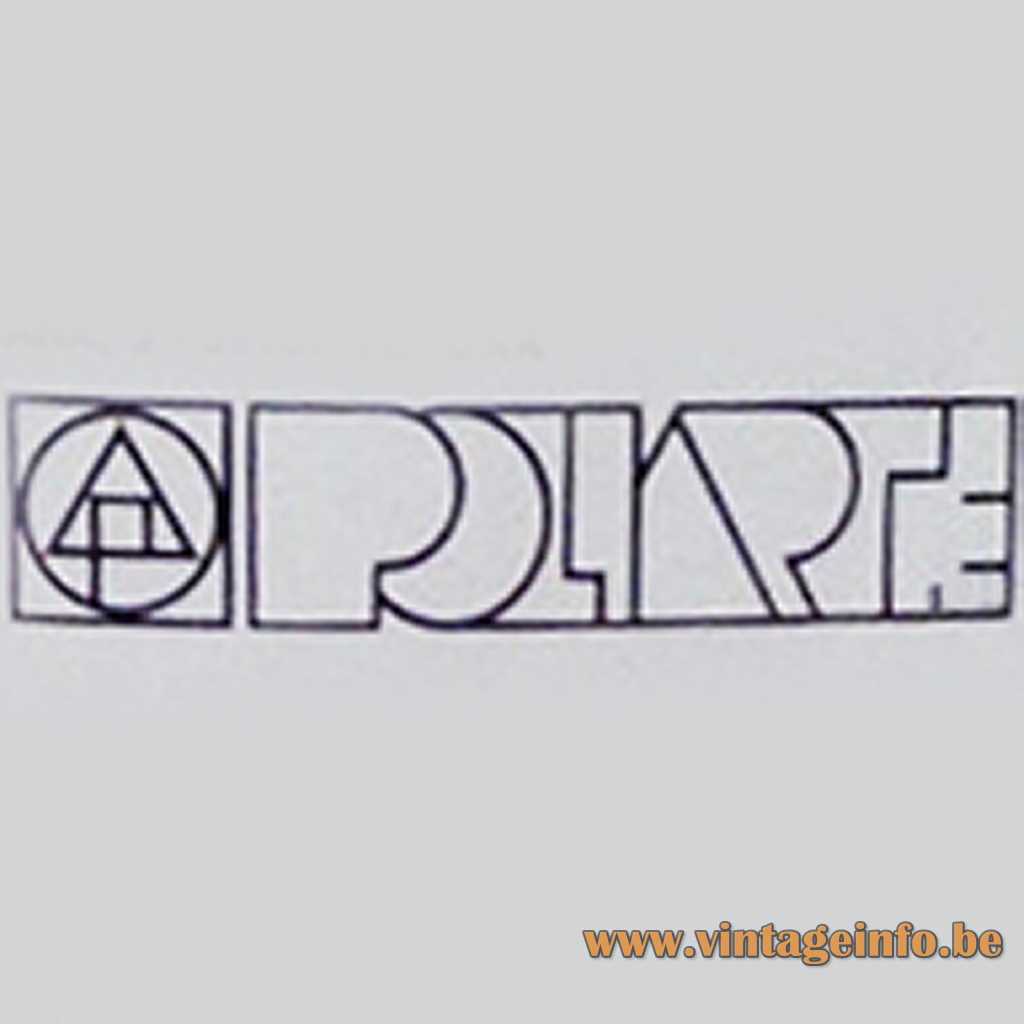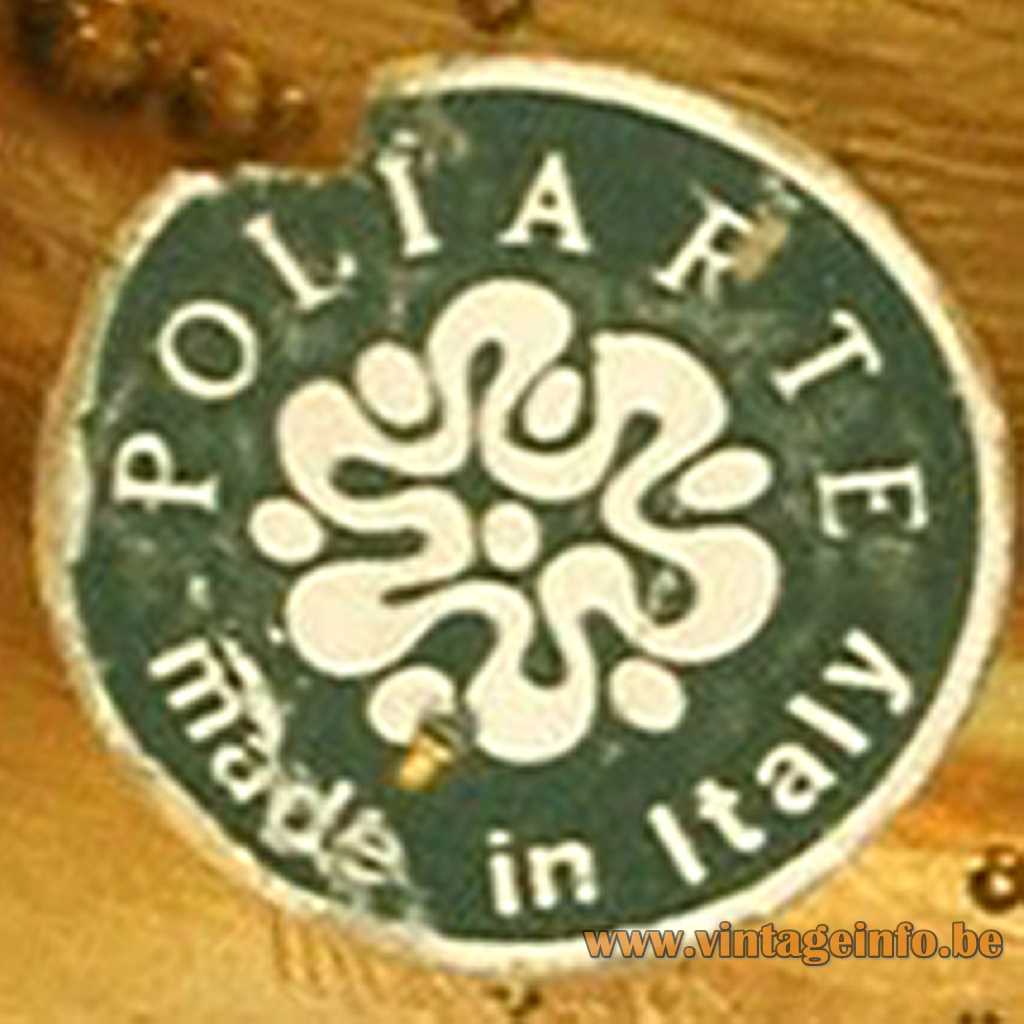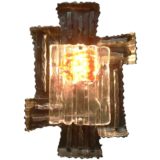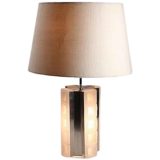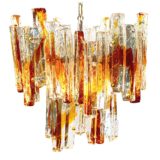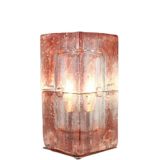Links (external links open in a new window)
Albano Poli – Progetto Arte Poli website
Academy of Fine Arts in Venice – website
Vintageinfo
Poliarte Wall Lamps
Materials: 14 amber and white square crystal hand-blown bubble glass (pulegoso) blocks per lamp. Rectangular stainless steel wall mount. Metal E14 sockets with a porcelain ring. Also made with Bakelite sockets.
Height: 27,4 cm / 10.78”
Width: 11,2 cm / 4.40”
Depth: 7 cm / 2.75”
Electricity: 3 x 40 watt bulb E14, 110/220 volt.
Any type of light bulb can be used, but preferably a silver bowl/cup light bulb.
Period: 1970s – Mid Century Modern.
Designer: Albano Poli (born 1935).
Manufacturer: Poliarte, Verona, Italy.
Other versions: These Poliarte wall lamps exists in many colours, versions and sizes. Table lamps, ceiling lamps, flush mounts, floor lamps were also made. The Poliarte company produced many lamps in this style. All in geometric forms.
These lamps are often attributed to Angelo Brotto, but those are false assumptions. Angelo Brotto designed lighting for the Italian Esperia company. Some lamps are more or less in the same style.
Pulegoso: Italian word taken from the dialect word pulega, which means bubble. The glass is containing numerous bubbles of all sizes, produced by adding bicarbonate/soda, gasoline, or other substances to the glass. The bubbles make the glass semi-opaque and give the surface an irregular texture. The technique was developed in the 1920s by Napoleone Martinuzzi (1892-1977) on the island of Murano, Italy and used for the first time by the famous Venini company.
Poliarte
Albano Poli founded Poliarte in 1968 as an innovative and experimental lighting company. Poliarte was based near Verona, Italy. Albano Poli designed and produced lighting with a team of some 30 craftsmen. They made no more than hundreds for each model.
His typical style was combining stainless steel or raw metal to modular compositions of glass elements. Such as cubes, rods and plates. The final effect was a three-dimensional lighting object. Some of his lamps have names such as Akikaze, Lussac and Nikirka.
The Poliarte company no longer exists. It ended business in 1979. Today the company of Albano Poli still creates stained glass windows. It is named Progetto Arte Poli Srl. (Art Project Poli).
